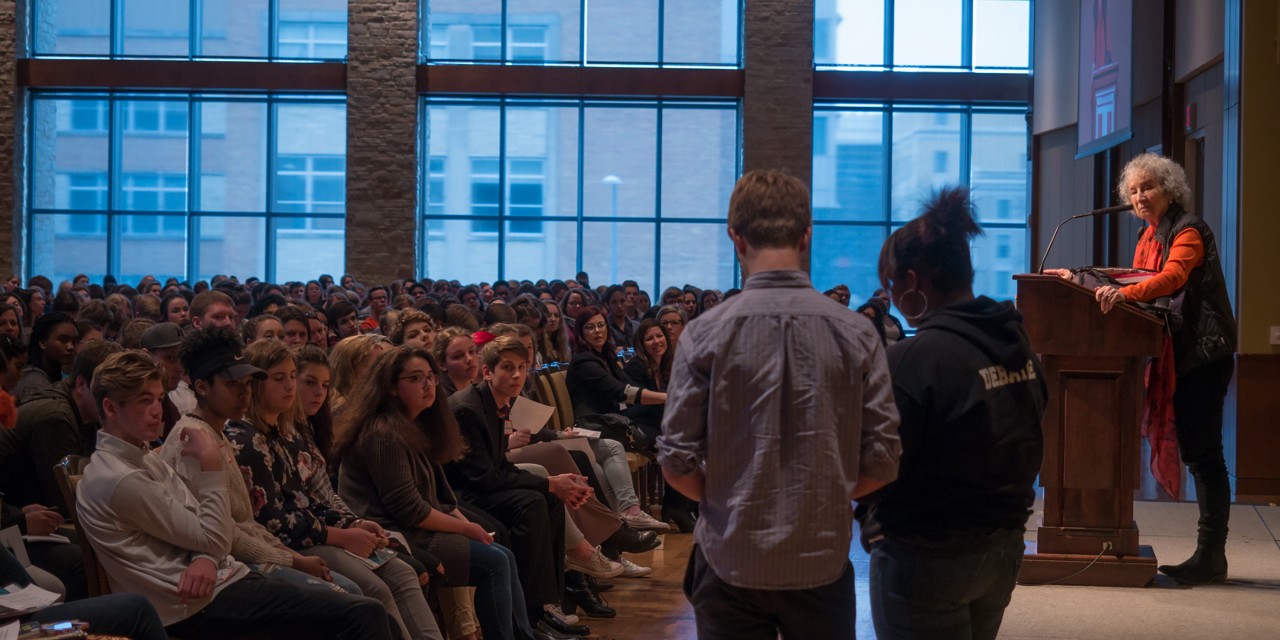Great World Texts in Wisconsin is a yearlong program at the University of Wisconsin–Madison Center for the Humanities that brings contemporary and historical literature from around the world to life in Wisconsin high schools. Focusing on different texts each year, UW–Madison scholars produce an educators’ guide and a series of on-campus programs for high school teachers and their classes.
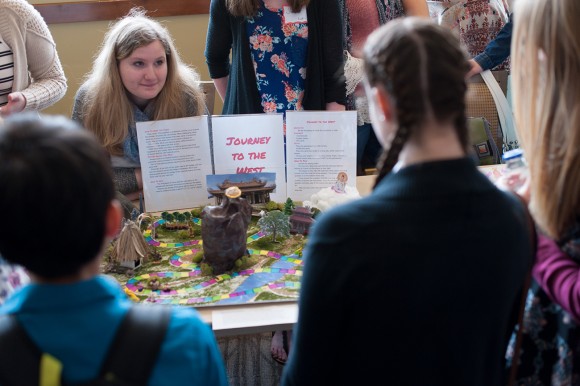
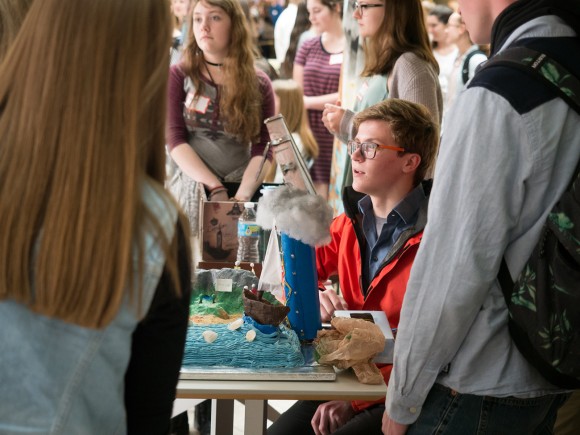
Great World Texts in Wisconsin is diverse by design, both in terms of its participants and the texts on which it focuses. The program draws in classes from around the state.
“This is not a program that’s only for Advanced Placement students or the most college-ready students,” Humanities Center Director Sara Guyer notes in a video (below) introducing the program. “Great works of literature are for everybody and we believe, I believe, and the program demonstrates, that that diversity is precisely what literature is good for.”
The choice of texts each year reflects this commitment to diversity. “We like to reflect geographic and historical range,” Guyer says. “There are so many places and parts of the world that we want to think about and explore with these students.” With these considerations in mind, the Center tends to select texts that are not usually taught but that offer opportunities for learning close reading, discussion, and analysis.
Short documentary introducing Great World Texts in Wisconsin. Video courtesy of the University of Wisconsin–Madison Center for the Humanities.
The program begins with the educators’ guide, which is produced through a collaboration between a graduate student and faculty advisor at UW–Madison. Available for free on the program website, the educators’ guide contains all the materials that students will need to explore the year’s text.
The 2017-2018 academic program centers on Rachel Carson’s Silent Spring. This groundbreaking work of scientific writing for a general audience showcases the impact of pesticides on the environment and public health in the years after World War II, drawing attention to the roles humans play in a complex ecosystem. These questions are at least as pressing today as they were in 1962, especially in a state as agriculturally and ecologically rich as Wisconsin.
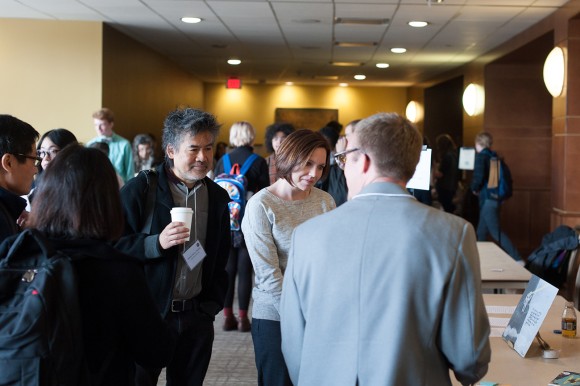
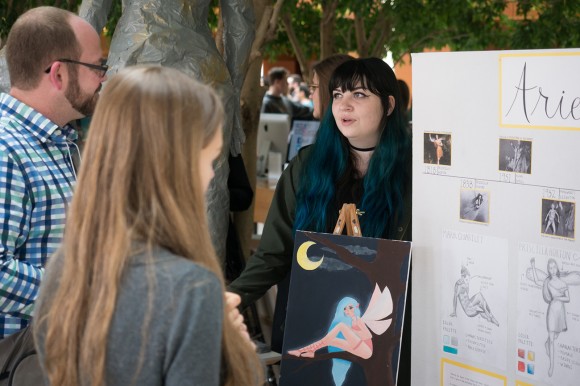
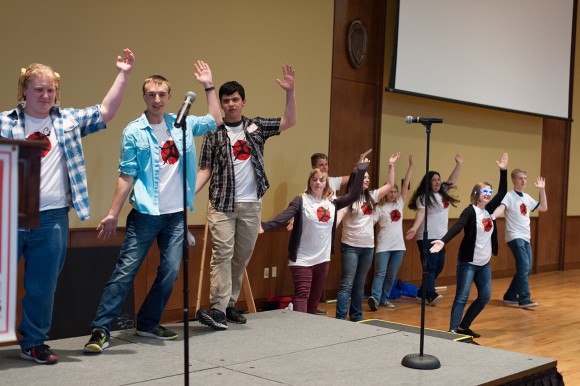
Teachers are encouraged to adapt the guide’s modules in any way that they wish, enabling them to meet the unique interests, needs, and concerns of their classes across the state. In introducing Silent Spring, the 2017-2018 educators’ guide emphasizes this flexibility. Teachers are encouraged to tailor discussion points, assignments, and activities to their classes and their unique scheduling needs.
Other recent years have focused on equally compelling and relevant literature from further afield, including 16th century China, ancient Greece, and contemporary Turkey, Nigeria, and Colombia.
The program provides participating teachers with the books themselves and everything that they will need to tailor the educators’ guide to their classes’ needs. The UW–Madison Library assists with the acquisition of texts for participating teachers, minimizing financial barriers to participation.
Teachers come to campus three times throughout the year, twice for colloquia and once with their students for the annual conference.
The colloquia bring teachers together to UW–Madison, to learn about the year’s great world text as a group. Run by the Center, these sessions offer teachers support in the preparation of Great World Texts course materials for their classrooms. As the semester continues, teachers stay in touch with the Center, engaging with a full-time staff member hired for this purpose.
The annual conference features a plenary session where students share creative interpretations of the year’s text with each other and participate in workshops with UW–Madison faculty, graduate students, and undergraduates.
There are no limits placed on students, who are encouraged to present critical analyses though essays and visual, performing, and culinary arts.The conference culminates with a keynote address, structured as a town hall to offer representatives from each participating class the opportunity to interact personally with a well-known author—either the author of that year’s text or an author otherwise connected with that year’s text.
When the program focused on Nobel Laureate Orhan Pahmuk’s Snow in 2013, UW–Madison brought Pahmuk to campus. Pahmuk was impressed with the students’ responses to his work. Before fielding questions from representatives of each class, Pahmuk reflected that “there are prominent critics in Europe and in other countries who read the novel as you do and who don’t get as much as you do.”
Great World Texts’ engagement with the broader Wisconsin public has deep roots in the UW System, as expressed in the “Wisconsin Idea.” In 1905, University of Wisconsin President Charles Van Hise articulated the principle that forms the core of the concept: “I shall never be content until the beneficent influence of the University reaches every family of the state.” One hundred years later, the UW-Madison Center for the Humanities’ Great World Texts in Wisconsin has helped realize Van Hise’s vision.
